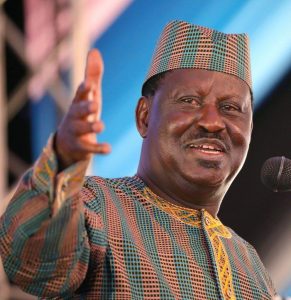During Thursday’s acceptance speech by the US Vice President Harris as the nominee of the Democratic Party at the DNC Convention inside the United Center, Chicago, her characteristically infectious laughter was on display. International Affairs analyst, Dr. Tony Onyima argues that laughter could be a potent weapon to defuse the volatile partisan politics in the United States ahead of the November presidential election.

By Tony Onyima
Laughter is often seen as a sign of warmth, a universal language that bridges divides and connects people on a human level. In the hands of Kamala Harris, however, it has become much more – a strategic tool, carefully wielded to disarm opponents, soften the blows of harsh realities, and create powerful narratives that resonate across the political spectrum. As the first woman of color to hold the office of Vice President of the United States and now the Democratic presidential nominee, Harris has turned her infectious laugh into a subtle yet powerful political instrument, one that plays a key role in shaping her image, deflecting criticism, and cutting through the noise of America’s deeply polarized political landscape.
In politics, where gravitas is often equated with stoicism and seriousness, laughter can seem out of place. But Kamala Harris has flipped that narrative. Her laughter does more than lighten the mood; it humanizes her in a way that connects her with everyday people. In a world where politicians are often viewed as stiff and out of touch, Harris’s joyful and unguarded laugh is a reminder that beneath the title of “Vice President” or “presidential nominee” is a person who can be just as relatable as anyone else.
For instance, Harris’s laughter during high-stakes interviews or tough press conferences is not just a defensive mechanism—it’s a way of inviting others to see her as a woman who, despite the weight of her responsibilities, refuses to lose her sense of self. In the 2020 campaign, this was on full display. Whether it was in response to sharp criticism or in moments of levity, her laughter conveyed resilience. It offered a subtle reminder that her optimism, even in the face of adversity, was part of her strength. In this way, Harris’s laughter is not merely an emotional response but a deliberate, humanizing tactic in a political environment that often strips candidates of their authenticity.
In the fiercely adversarial world of American politics, Kamala Harris has often faced criticism, not just for her policies but for her identity as a woman of color in a predominantly white, male-dominated field. Instead of engaging in bitter back-and-forths or allowing herself to be baited by opponents, Harris has frequently used laughter to deflect and disarm.
During debates or tough questioning, her laughter acts as a form of rhetorical judo, turning the energy of an attack back on the aggressor. When former Vice President Mike Pence attempted to talk over her during their 2020 vice-presidential debate, Harris’s smile and composed laugh, coupled with the now-famous “Mr. Vice President, I’m speaking,” sent a clear message. She was in control – not rattled, not angry, but fully aware of her power and how to wield it.
In this way, laughter becomes a shield – an effective counter to political attacks that might otherwise be framed as disrespect or weakness. For Harris, laughter in the face of opposition does not signify flippancy or detachment. Instead, it reflects confidence and resilience, sending a message to both her supporters and detractors: she will not be easily shaken or provoked.
Politics is often a battle over narratives – how issues are framed, how events are perceived, and how candidates are portrayed. Kamala Harris has weaponized her laughter in the fight for a hopeful and forward-looking political narrative. At a time when the United States faces deep divisions, from racial tensions to economic inequalities and global uncertainties, Harris’s laughter is a beacon of hope, signaling that optimism and progress are not just possible but attainable.
Her laughter, often associated with moments of warmth or storytelling, helps her frame her journey – from her roots as the daughter of immigrants to her rise as one of the most powerful women in the world – as an inherently American success story. In a political climate that often feels heavy with cynicism and despair, Harris’s laughter disrupts this negative narrative, reminding the public that optimism and joy have their place in the national conversation.
Harris’s weaponization of laughter also plays a role in how she navigates the broader issues of race and gender. For women in leadership, especially women of color, there is often a pressure to conform to certain expectations—stoicism, deference, and a cool, composed demeanor. Laughter allows Harris to break those molds, presenting herself not just as a trailblazer but as a whole person who refuses to be defined by the limitations imposed upon her. In a sense, her laughter is a revolutionary act, a refusal to play by the rules of a political establishment that has long been dominated by men.
Of course, like any political tool, laughter carries its risks. Critics have accused Harris of being evasive or unserious in moments that demand gravity. There have been instances when her laughter has been framed as inappropriate, particularly when the public expects a more solemn response to serious issues. But these moments are few and far between compared to the broader strategic effectiveness of her approach.
Harris’s laughter walks a delicate line between levity and gravitas, and while it may not always land perfectly, it almost always conveys control. More importantly, it resonates with a growing segment of the electorate that is tired of the toxic partisanship, mistrust, and anger that dominate the political discourse.
In many ways, Harris’s laughter reflects the larger story of her political journey: one of perseverance, optimism, and strength in the face of adversity. It is a reminder that in politics, as in life, sometimes the most powerful weapon is not anger or force, but joy.





















